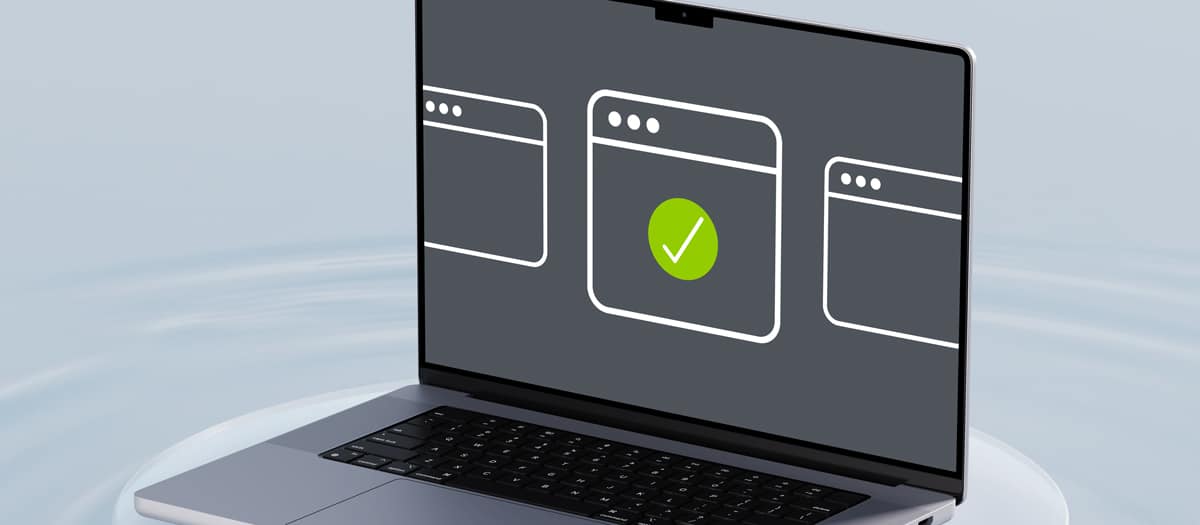Whether you are building a high-traffic e-commerce website, an e-learning platform, or a personal portfolio, choosing the right hosting infrastructure is the first step to building a secure and successful online business.
Indeed, it is not easy to compare web hosting providers in terms of security. Each provider offers different services and pricing models, and not all are transparent about their plans’ features. This could make it hard to understand what you’re paying for and if you’re getting the features your website needs.
This blog post aims to help you navigate the often inconsistent sea of information related to web hosting services. We have broken down the key security features you should look for in a hosting service and put together a checklist to help you compare hosting providers based on specific features and security measures.
Make informed decisions based on facts and information, and ensure your web projects receive the security they deserve.
Infrastructure
When building an online business, the first and most crucial element to consider is the type of web hosting your site needs. Your budget may limit your choice, but you should never settle for cheap hosting. Instead, choose the hosting infrastructure by striking the optimal balance between your budget requirements and the characteristics of the infrastructure. Now, let’s take a look at the main options.
Shared Hosting
Who hasn’t used shared hosting at least once in their lives? It’s cheap and easy to manage, and typically includes additional services such as email hosting and domain registration. Shared hosting makes life easier for less experienced site owners. However, it can bring security risks because your website resides on a physical server with dozens or hundreds of other sites sharing the same resources (CPU, RAM, and disk space). If one of these websites is compromised, your site is also at risk. Moreover, a shared environment can experience performance issues and lead to unexpected downtime.
Dedicated and VPS Hosting
Dedicated hosting gives your website its own physical server with clear advantages in terms of resources and security. However, it may be expensive, and you’ll need an experienced team of engineers to configure and manage the server environment.
VPS hosting combines dedicated and shared hosting features. Instead of a server, your website resides in an isolated virtual machine. As for dedicated hosting, VPS hosting is typically more expensive than shared hosting but requires advanced technical skills.
Cloud Hosting and Managed Cloud Hosting
Cloud hosting is different from traditional shared, dedicated, and VPS hosting. A cloud hosting provider hosts your website across a highly scalable, reliable, and secure network of interconnected servers. It eliminates the single point of failure that can affect a dedicated server, allowing you to scale your website along with your business easily.
However, cloud hosting services may be expensive and require expertise that not every team or WordPress agency has. This is where managed cloud hosting comes in.
With Managed Cloud Hosting for WordPress, your site gets a powerful and secure infrastructure combined with an easy-to-use hosting service. This enables novices to launch a website in minutes, while expert teams of developers can focus on their company’s growth and site functionality.
Kinsta provides an excellent example of this approach. They use Linux containers (LXC) and LXD to orchestrate them on top of Google Cloud Platform. This means your WordPress website is fully isolated from all other sites on their platform.
Kinsta also includes enterprise-level security measures perfect for high-volume websites and WordPress agencies. These include a Cloudflare integration with a built-in Web Application Firewall (WAF), custom rulesets, and free DDoS protection.
Kinsta combines the ease of use of managed hosting for WordPress with a solid cloud infrastructure providing high performance, cutting-edge security, and an SLA-backed 99.9% uptime guarantee.
Security features to look for in a web host
In addition to the underlying hosting infrastructure, you should compare web hosts based on their security features. Here’s a list of essential security measures, services, and features you should look for in a web host for your website:
- Web Application Firewall
- DDoS protection
- Supported PHP versions
- Free SSL/TLS certificates
- SFTP connections
- Staging environments
- Regular backups
- Managed WordPress updates
- Malware detection and hack-fix
- Vulnerability alerts
- Server hardening measures
- Expert support available around the clock
Web Application Firewall
A Web Application Firewall (WAF) filters incoming traffic before it reaches your website, helping you to prevent common attacks, such as cross-site scripting and SQL injections.
DDoS protection
A distributed denial-of-service (DDoS) attack occurs when a malicious user floods your site with overwhelming requests. This can reduce your site’s performance or, even worse, cause downtime. You should look for web hosts that offer DDoS protection. If they don’t, consider subscribing to a third-party service, such as Cloudflare or Akamai.
Supported PHP versions
Each PHP version receives regular security updates during its lifecycle. However, once a version has reached the end of its lifecycle, it no longer receives security updates and becomes vulnerable to bugs and security flaws.
This makes it an easy target for malicious actors. Ensure your WordPress website runs on a PHP version that hasn’t yet reached the end of its lifecycle. With that in mind, also compare web hosts based on the supported PHP versions.
Free SSL/TLS certificates
SSL (Secure Sockets Layer) encrypts the data between your site’s server and the client. An SSL certificate is vital for every website, especially for online businesses and, in general, any time a website stores personal data such as credit card details, because it ensures secure transactions and generates trust. A valid SSL certificate also improves SEO rankings.
SFTP connections
Traditional FTP connections do not guarantee secure data transmission when you upload files to your server. Compare web hosts based on their support for SFTP (Secure File Transfer Protocol), which uses a secure connection over SSH. This prevents diverse attacks such as man-in-the-middle, sensitive data interception, and unauthorized server access.
Staging environments
A staging environment is a dev environment where you can test new features, build custom code, and run updates before pushing them to production. It’s a must-have feature for business websites, as it helps prevent errors that may put your live site at risk.
Regular backups
To be clear, having a working website backup can be a lifesaver—for you and your business. Malware attack, conflicts between plugins or the WordPress core, or an update gone wrong: In all these cases, a recent backup can help you get back online in minutes. When comparing web hosting providers, check if they provide reliable backups and a quick and easy restore process.
Managed WordPress updates
The WordPress code base is accessible to everyone, including malicious actors. This also means that known vulnerabilities are public. For this reason, regular WordPress core, plugin, and theme updates are vital to preventing a vulnerability flaw from becoming a catastrophe for your site and business. However, updates can fail, or conflicts can arise after an update, causing malfunctions and even downtime. Some hosting providers offer managed updates beyond the WordPress automatic updates, which are particularly useful for business websites and WordPress agencies with hundreds of websites.
Malware detection and hack-fix
Platform security also needs regular monitoring. When comparing different web hosting companies, ask what kind of malware scanning they perform, what security measures are in place, and whether they proactively fix any issues that may arise. A hack-fix guarantee would provide great peace of mind.
Vulnerability alerts
A great web host should proactively inform you about any potential issues affecting your website. They should alert you when a vulnerability is discovered on a plugin, theme, or WordPress core, so you can take proper action to protect your website.
Server hardening measures
Other general or WordPress-specific security measures include malicious IP blocking, two-factor authentication (2FA), and uptime monitoring. If you cannot find information on their website about the server hardening measures they use, contact their sales team and ask them explicitly.
Expert support available around the clock
A support service available 24/7/365 is not a nice-to-have feature but an essential requirement for a successful business. A high-traffic WordPress site will likely experience problems at some point. A skilled and proactive expert support helps you keep your business secure and, in case of problems, get it back up and running quickly.
Compare hosts based on their support response times, technical expertise, and availability. Also, compare them based on whether expert support is included in their plans or if you must pay an extra fee for it.
How Kinsta Improves WordPress Security
Kinsta combines the robust Google Cloud Platform infrastructure with Cloudflare’s Enterprise CDN to offer cutting-edge security to every WordPress website hosted on its platform. Their Premium managed cloud hosting service protects your website with three layers of security.
Passive security measures
These measures are constantly active to prevent malicious traffic from reaching your WordPress website. Some measures include Google Cloud Platform’s firewall, Cloudflare’s firewall with built-in DDoS protection and other optimizations, free SSL certificates, secure SFTP connections, and server hardening features such as 2FA and IP blocking.
Reactive security measures
If something should go wrong, Kinsta’s third layer of protection will minimize any damage and restore your WordPress site as quickly as possible. Thanks to 6 types of backups, a hack-fix guarantee, and 24/7/365 Expert Support in 10 languages, your website can be back online in no time with Kinsta.
Proactive security measures
Another level of protection is provided by constant network monitoring, automation features, and other security measures designed to detect and neutralize vulnerabilities before someone can exploit them to damage your website. Some of these measures include support for the latest PHP versions, malware detection, vulnerability alerts, Kinsta managed WordPress updates, staging environments, and much more.
Thanks to our partners at Kinsta, we don’t have to worry about complex configurations or scramble to fix a site under attack. They give us the peace of mind to focus on our clients’ projects without worrying too much about security configurations.
Hosting provider security checklist
Finally, we come to our hosting provider security checklist. We have listed all the features mentioned above so that you can compare your potential hosting providers and pick the one that best fits your business’s security requirements.
As you might have guessed, we chose Kinsta because of their high security standards, reliability, and availability, but don’t just take our word for it. Search the websites of hosting companies. If you cannot find the information you need, contact their sales teams. Then, compile the following table to determine which hosting provider is best for your site’s security.
| Feature/Service | Company 1 | Company 2 | Kinsta |
| Type of hosting | Cloud Managed | ||
| Infrastructure | Google Cloud Platform – Isolated containers | ||
| Firewall | Cloudflare | ||
| DDoS protection | Cloudflare | ||
| Supported PHP versions | All supported PHP versions | ||
| Free SSL Certificates | Yes | ||
| Type of connection | SFTP/SSH | ||
| Staging environments | Yes, included in all plans | ||
| Backups | Daily automatic, manual, downloadable, one-click restore. Premium options available | ||
| Managed WordPress updates | Add-on available | ||
| Uptime monitoring | Every 3 minutes | ||
| Automatic malware removal | Yes, free and guaranteed | ||
| Vulnerability alerts | Yes, via email and in the dashboard | ||
| IP deny | Yes | ||
| 2FA | Yes, for the dashboard | ||
| Expert support | Yes, available via chat for all plans |
Now it’s up to you to choose a host with state-of-the-art security features. Use this table to compare hosting companies and select the one that best meets your needs.
The security of your online business is not negotiable: make the right choice!
Need Help Deciding Which is Best for You?

Related articles
-

Why Choosing the Right CMS Can Make or Break Your Website
When it comes to building a website that actually works for your business, the CMS isn’t just another tool, it’s the backbone of the entire operation.
-

Rethinking WordPress Multisite: Simpler, Smarter, More User-Friendly
When WordPress 3.0 was released back in 2010, named Thelonious after jazz pianist Thelonious Monk, it introduced a feature that fascinated me immediately: Multisite.

Failed to submit:
one or more fields are invalid.